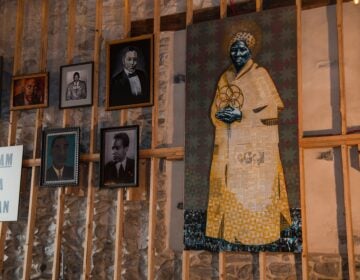Vandals strike Delaware Black history trail just two weeks after its debut
The trail describes the history of the free Black community that formed in the Iron Hill area near Newark in the 1830s.
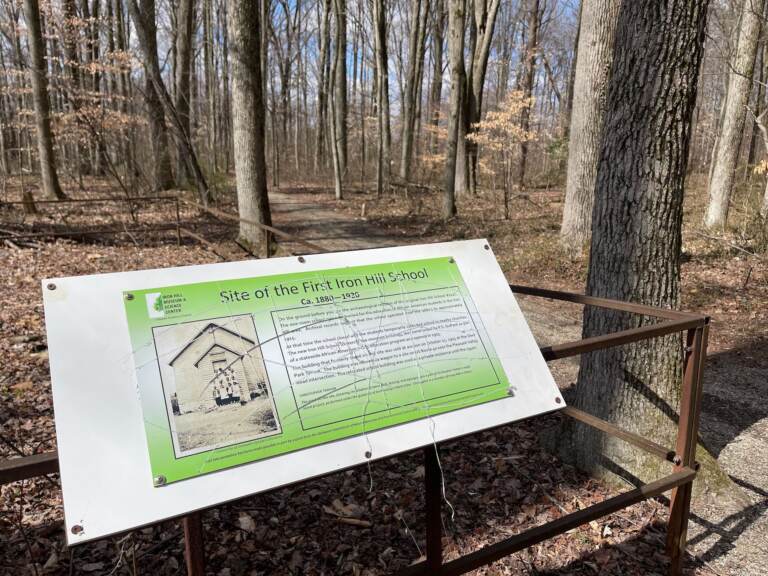
Vandalism at the new African American historic trail. (Johnny Perez-Gonzalez/WHYY)
Vandals destroyed or displaced more than a dozen signs marking the Iron Hill Museum’s new African American History Trail just two weeks after it opened to the public.
The museum created the trail with the help of a $25,000 grant from the Delaware Natural Resources and Environmental Control. That money supported the construction of the trail and a monarch butterfly waystation garden, along with the removal of invasive species and habitat rehabilitation.
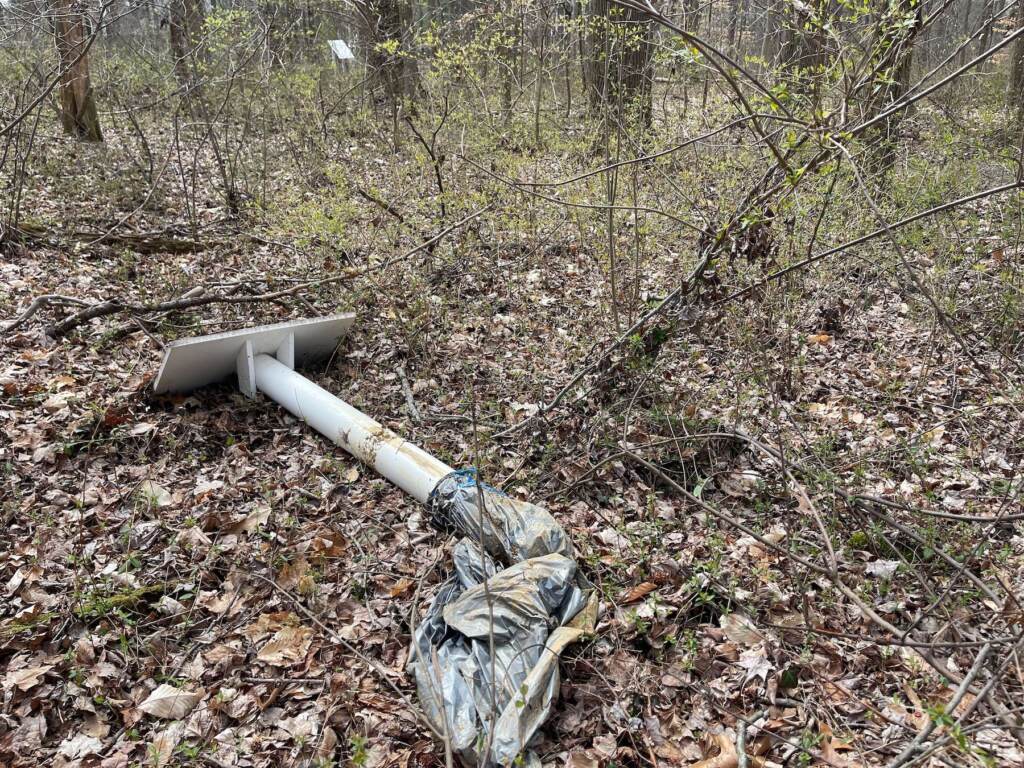
“It’s a history that is little known and very little celebrated,” said Debbie Keese, vice president of the Delaware Academy of Science. “It’s an important part of the culture of Delaware and certainly of African American forbearers and ancestors of the present people who are still in the region.” The trail was the central focus of the story of the African American community’s history dating back to the 1800s.
The trail describes the history of the free Black community that formed in the Iron Hill area near Newark in the 1830s. “The families remained strong through the post-war periods of reconstruction and the era of segregation, where everyday struggles for economic and educational justice was supported by community, church, and family,” Keese said last month when the trail was dedicated.
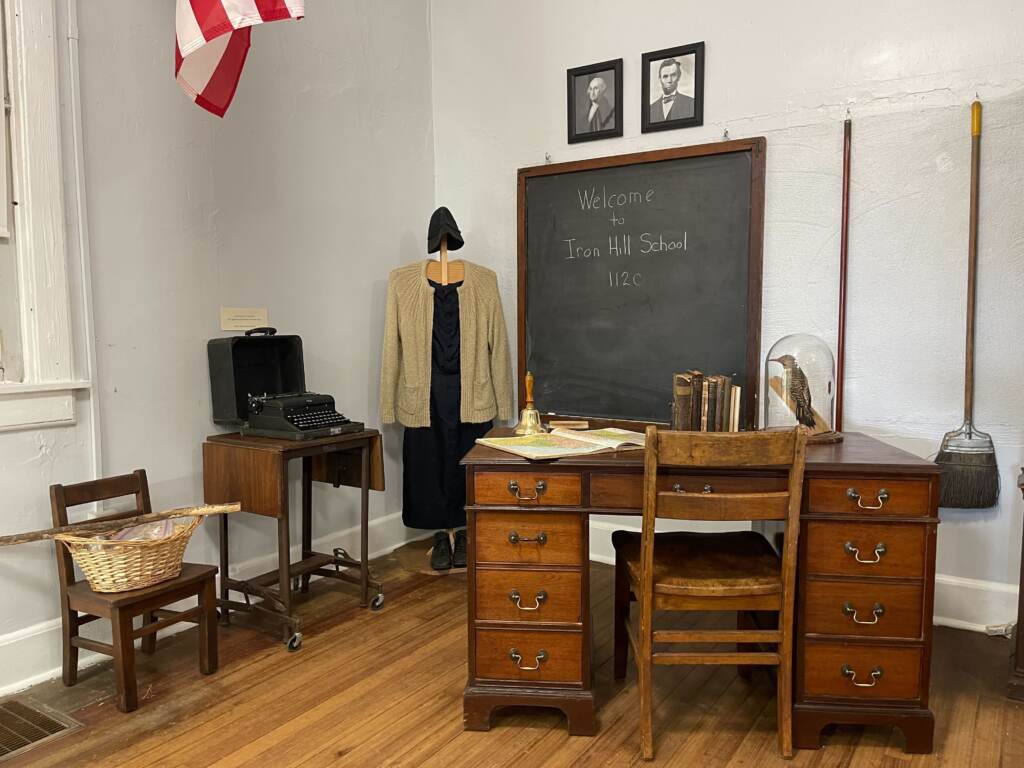
Keese doesn’t believe the attack was racially motivated or a hate crime; rather, she thinks the vandals had something against the organization itself.
“I do not believe that it is aimed at the African American subject matter,” Keese said. “I believe that it is aimed at our organization by a disgruntled person.”
Vandalism is nothing new for Iron Hill. Kesse said it has been going on for two years.
Other incidents of vandalism include “locks being cut on our chains into the building blocks that we lock up at night, trash being strewn about the trails,” she said. A fence built for safety around the edge of an old mine was also destroyed. “Then our shed began to be broken into. When we put up cameras, the cameras were destroyed or stolen.”
A volunteer first noticed 14 informational signs had been stolen, unscrewed, and pulled off their stands on Sunday, March 12. Several of the stands were dug out from the ground and tossed into the woods near the trail.
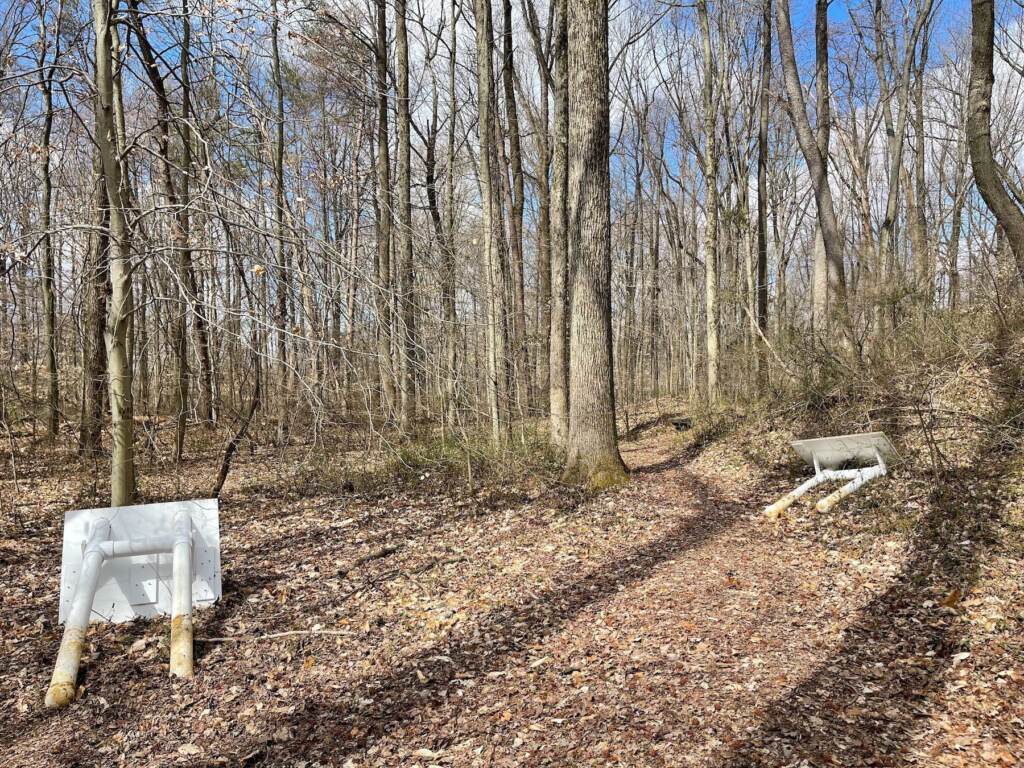
Since then, volunteers have cleaned up the trash and shattered glass, but the damage to trail signs is more difficult to fix. “They scraped and used a knife to just destroy one of the signs,” Keese said. “Most of the signs are gone there. They are ripped, others have just disappeared.”
Kesse estimates the cost of repairing or replacing the signs will total $8,000.
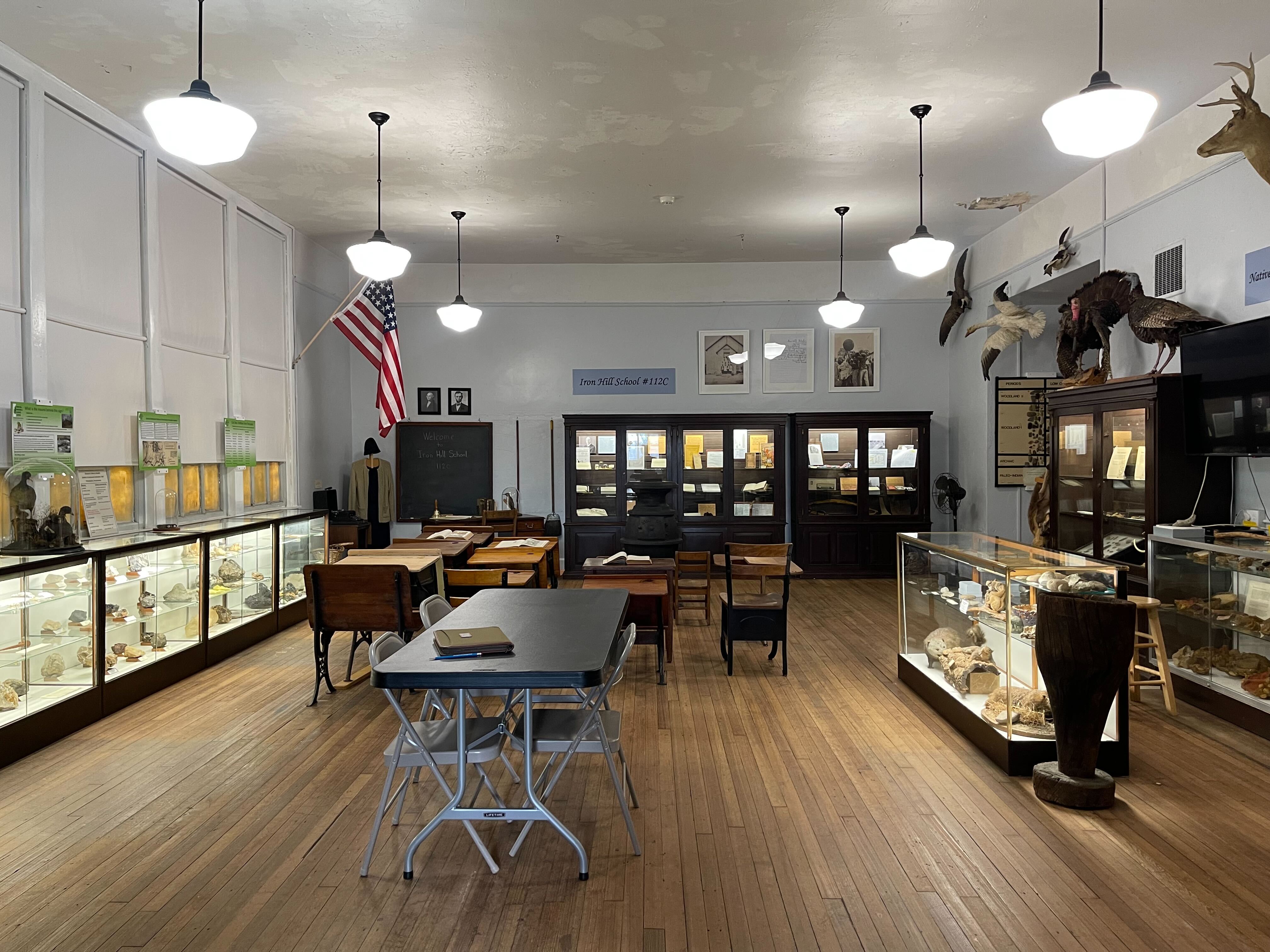
“It’s devastating to see that someone or some ones are disturbed enough to do such damage and to desecrate such a property as ours that is open to the public,” she said. “It’s also an action against the public as well … this is a place for people to learn about the history of the community that was here.”

Get daily updates from WHYY News!
WHYY is your source for fact-based, in-depth journalism and information. As a nonprofit organization, we rely on financial support from readers like you. Please give today.





